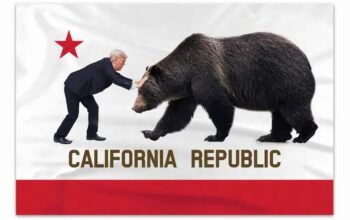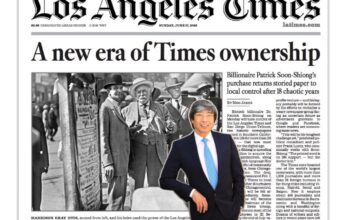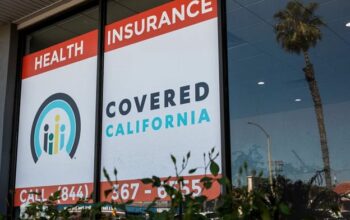This is what the drug cartels love—a good tax increase on the price of “legal” marijuana. The goal is not to create revenue. Nope, the goal is to make profits for the cartels that sell illegal marijuana. The goal of legalization was not control or revenue—it was promoted by the cartels for the purpose of normalizing pot use.
Seriously potheads are stupid—but not dumb. Why pay a legal shop double for a joint, when they can get it for half price on a street corner—or delivered to their home? Even potheads like to save money. So, vote for this marijuana tax to help the drug cartels make more money.
Corona’s Measure G would tax marijuana stores up to 9%

Nov. 8 initiative would raise $5 million a year for services such as police and fire protection, street paving
By David Downey, Press enterprise, 10/13/22
Corona voters will decide whether to authorize taxes on marijuana businesses in Riverside County’s third-largest city.
If approved in the Nov. 8 election by a simple majority of those casting ballots, Measure G could generate $5 million a year to finance general city services — such as police and fire protection, street paving and park mowing — the city estimates.
The measure would let the city set tax rates of up to 9% on retail sales of storefront and delivery operations, tax manufacturing and distribution businesses up to 7%, and tax testing laboratories up to 3%.
Measure G also would authorize taxes – at rates as high as 15% – on new cannabis businesses Corona may allow in the future such as cultivation, which is prohibited.
The measure includes what City Attorney Dean Derleth characterized earlier as a “novel provision” that would empower Corona to tax illegal marijuana shops at 15% as well.
Operations Manager Chad Miller stands Tuesday, Oct. 11, 2022, next to a display case of marijuana products at FLWR CO CORONA. The facility is the first of 12 cannabis storefronts to open in Corona. (Photo by Watchara Phomicinda, The Press-Enterprise/SCNG)
“This is intended to be a deterrent to the gray and black market,” Derleth told the Corona City Council on July 6, according to a meeting videotape. The council voted 5-0 that day to place Measure G on the Nov. 8 ballot.
City officials have said the taxes would replace fees that permitted marijuana businesses have agreed to pay. Mayor Wes Speake said this week that Measure G in essence would codify the charge and put it on solid legal ground.
Passage would establish a range of possible tax rates, such as between 0 and 9% for cannabis stores. The Corona City Council would decide later where to set rates within ranges.
Speake said his intention, if the measure prevails, is to match the current 7% fee storefronts are contractually obligated to pay with a new tax of 7%. The fee would be eliminated, he said.
Corona activist Joe Morgan said he’s not against the tax. But with the stated goal being to replace the fee, Morgan said, he would have preferred the council set the maximum for cannabis stores at 7% in the measure.
“Put on the ballot what you agreed to,” Morgan said.
Morgan said governments of all types – federal, state and local – tend eventually to gravitate toward their maximum taxing authority.
“It’s never a good idea to give any form of government free rein,” he said.
Speake countered that it is helpful to have the ability to go higher later if necessary.
Speake said the 7% amount is based on what is believed to be needed to cover city costs – such as police protection and code enforcement – associated with marijuana businesses.
He said the measure would give Corona flexibility to raise the tax if those costs turn out to be higher than anticipated. Conversely, he said, if costs turn out to be lower, the council could set the tax below 7%.
“We’re going to monitor that over the next couple of years and be able to come back and revisit it,” he said.
Marijuana enterprises gradually have spread across the Inland Empire in response to Californians’ 2016 vote to legalize recreational cannabis use. Much of the focus has been on the visible retail side of the business.
Corona leaders limited the number of cannabis stores in their city to a dozen.
“We had a competition,” Speake said, to determine who would get to set those up.
City spokesperson Cindy Solis said by email Tuesday, Oct. 11, that Corona gave preliminary approval for 11 storefronts and in August issued a building permit for another.
The city also has given preliminary approval for one retail delivery business, one distribution operation and one micro-business that combines retail sales, manufacturing and distribution, Solis wrote.
As of Tuesday, no one had applied to operate a testing laboratory or manufacturing plant, she wrote.
As for the building permit, it was issued to FLWR CO CORONA, she said. The store opened Saturday, Oct. 8, at 536 Queensland Circle with a ribbon-cutting ceremony attended by business leaders and the mayor.
“There were almost 200 people waiting in line,” Speake said.
Business has been “outstanding,” said Kort Potter, CEO and owner of FLWR CO CORONA, and the store is “getting busier every day.”
Customers appreciate the store atmosphere he described as modern, clean and having a “good vibe,” Potter said.
“The soft lighting, polished concrete floors, upbeat lounge music, and white acrylic cabinetry makes it appealing to all whether you are new to cannabis or have been a frequent user,” he wrote in an email.
Potter said he doesn’t have an issue with Measure G, as other California cities that opened the door to cannabis businesses have enacted taxes.
“It’s nothing new,” he wrote. “I feel the City of Corona would benefit from the additional tax revenue. I just ask that they keep the number of licenses in the city capped at the current limit so the tax increase doesn’t create strain on current cannabis businesses.”
Potter also said he would like to see the city maintain the existing 7% assessment for marijuana stores for a while, at least “until things calm down” with inflation.
According to a city election webpage, the five city council members filed an argument in favor of the ballot measure and no one filed an argument in opposition.
Citing the unusual 15% taxing provision, the council members wrote that the city intends to use every tool available to shut down unlicensed businesses and “our tax collection powers to make illegal operators reimburse us for those efforts.”
Whether voters support recreational use of marijuana or not, the council members wrote, Measure G would ensure operators comply with complex laws and that their operations don’t pull money away from other city services.
If voters pass it, Measure G would take effect 10 days after election results are certified.



